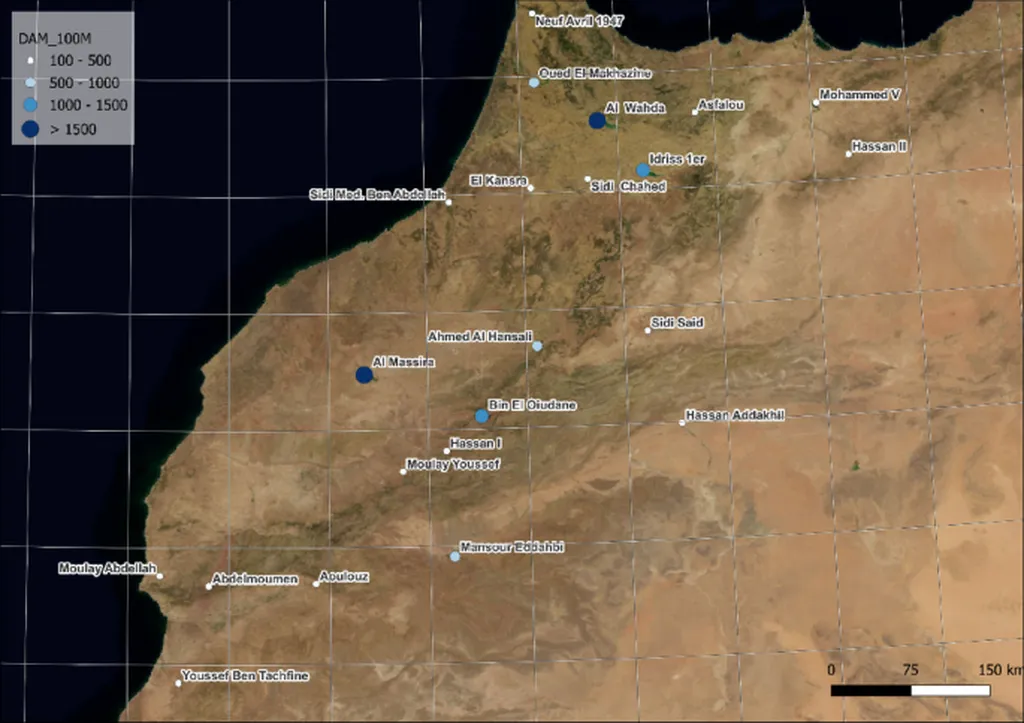In the heart of North Africa, Morocco is grappling with an escalating water crisis that threatens its agricultural backbone and food security. A recent study published in *Frontiers in Sustainable Food Systems* sheds light on the severity of the situation and explores pathways towards sustainable water management in the region. The research, led by Abdellatif Boutagayout from the Faculty of Science at Moulay Ismail University in Meknes, Morocco, underscores the urgent need for integrated water governance, combining technological innovation with ecological practices and policy reforms.
Morocco’s agricultural sector, which accounts for a significant portion of the country’s economy, is particularly vulnerable to water scarcity. Nearly 80% of Morocco’s cultivated land relies on rain-fed agriculture, making it highly susceptible to fluctuating precipitation and rising temperatures. The study highlights that 2023 was the driest year in at least eight decades, with total rainfall below 100 mm and a deficit of nearly 48% compared to the national average. The six-year period from 2019 to 2024 represents the longest recorded sequence of consecutive drought years, with an average rainfall deficit of 35%.
Despite substantial investments in hydraulic infrastructure, rising from a storage capacity of 1.2 billion m3 in 1960 to more than 19 billion m3 today, reservoirs were only 28.5% full in 2024, storing 4.8 billion m3. This structural water deficit poses a significant challenge to the agricultural sector, which is the lifeblood of many rural communities and a crucial contributor to the national economy.
The study emphasizes that Morocco has attempted to address these challenges through ambitious policy frameworks, prioritizing efficient irrigation systems, sustainable agricultural practices, and resilience to climatic shocks. Large-scale investments in dams, desalination, and irrigation modernization have been complemented by international partnerships that provide technical expertise and financial support.
However, the research also highlights the potential of agroecological practices, such as agroforestry, crop diversification, and crop rotation, as underutilized but highly relevant pathways for improving water efficiency, restoring soil fertility, reducing erosion, and enhancing biodiversity. “By weaving together climatic evidence, hydrological data, and agricultural strategies, this review highlights the urgency of implementing integrated water governance in Morocco,” Boutagayout noted.
The commercial impacts of these findings are profound. For the agricultural sector, the adoption of integrated water management practices could lead to increased resilience and productivity, ensuring food security and economic stability. The study suggests that combining technological innovation with ecological practices and policy reforms could secure water and food resources in a context marked by persistent droughts and accelerating climate change.
As Morocco continues to face extreme hydro-climatic conditions, the research underscores the importance of a multi-faceted approach to water management. By integrating climate science, hydrological data, and agricultural strategies, the country can navigate the challenges posed by water scarcity and build a more sustainable future for its agricultural sector and beyond. The findings of this study, published in *Frontiers in Sustainable Food Systems* and led by Abdellatif Boutagayout from the Faculty of Science at Moulay Ismail University, offer a crucial roadmap for achieving this goal.

